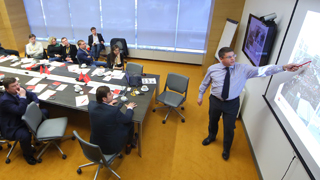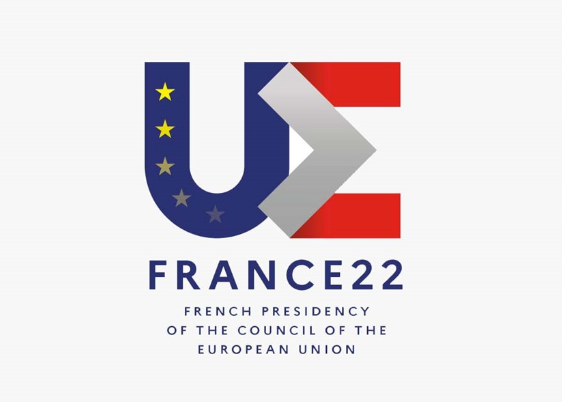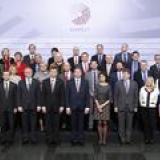
Työmarkkinaosapuolten välinen vuoropuhelu
Työmarkkinaosapuolten välinen vuoropuhelu tarkoittaa työnantajien ja työntekijöiden välisiä neuvotteluja, kuulemisia, yhteisiä toimia, keskusteluja ja tietojenvaihtoja. Hyvin toimiva työmarkkinaosapuolten välinen vuoropuhelu on keskeinen työkalu työolojen muovaamisen kannalta, ja siinä on mukana monia erilaisia eri tason toimijoita. Sillä pyritään tasapainottamaan työntekijöiden ja työnantajien intressejä ja lisäämään sekä taloudellista kilpailukykyä että sosiaalista yhteenkuuluvuutta.
EU:n tasolla käydyssä viimeaikaisessa poliittisessa keskustelussa on korostettu, että erityisesti vuoden 2008 kriisin jälkeen sosiaalisesta oikeudenmukaisuudesta, demokratiasta, työn laadusta ja työmarkkinasuhteiden uusista malleista on alettu käydä uutta keskustelua, mikä on asettanut haasteita perinteisille työmarkkinasuhteille ja työmarkkinasuhdejärjestelmille.
Kun Euroopan työmarkkinaosapuolten välisen vuoropuhelun historiallisesta käynnistämisestä Brysselin Val Duchessessa oli kulunut 30 vuotta, komissio käynnisti työmarkkinaosapuolten välisen vuoropuhelun uutta alkua koskevan hankkeen 5. maaliskuuta 2015 pidetyssä korkean tason edustajien tapahtumassa, johon kokoontui työmarkkinajärjestöjä ympäri Eurooppaa. Euroopan työmarkkinaosapuolten välinen vuoropuhelu on Euroopan unionin sosiaalipolitiikan työkalu, jolla voidaan edistää suoraan EU:n työmarkkinalainsäädännön ja -politiikan muovaamista.
- Euroopan komission tapahtuma ”A new start for social dialogue” (uusi alku työmarkkinaosapuolten vuoropuhelulle)
- Eurofoundin blogiteksti: From Val Duchesse to Riga: how to relaunch social dialogue? (Val Duchessesta Riikaan: miten työmarkkinaosapuolten välinen vuoropuhelu käynnistetään uudelleen?)















